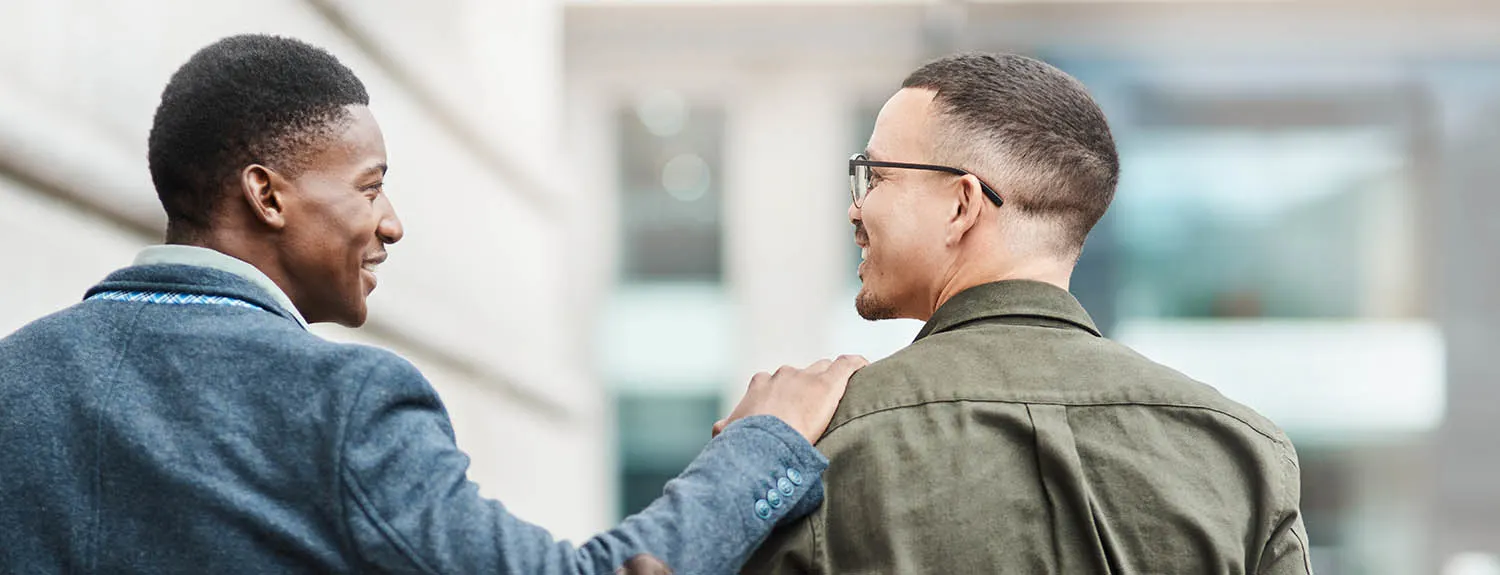
A Different Kind
Of Strength Training
Written By: Robb Stevens
All of us have a vision of ourselves – our strengths, weaknesses, quirks, uniqueness (good or bad), a sense of our worth and value to the world, and what we contribute to it. This sense of self is fueled in part by talents or gifts that are unique and inherent to us. Some gifts are obvious or easily developed, while others may be less apparent. Some people may even struggle to recognize and develop their gifts. There is also a human tendency to compare ourselves with others around us. In doing so, we may naturally feel superior or inferior as we consider our own strengths and weaknesses against someone else’s. Each person is one of a kind, and we all function differently based on our personalities, experiences, circumstances, or frames of reference. It is tremendously empowering then, to better understand both our strengths and weaknesses and discover ways to improve them. By doing so, we benefit from them personally and can better serve the world around us by putting to good use the strengths and gifts that we alone possess. While our strengths and gifts can be leveraged to enrich our lives and push us to greater heights, our weaknesses, on the other hand, need not be our downfall. Often, limitations or perceived limitations can be improved and built over time. Ralph Waldo Emerson said, “that which we persist in doing becomes easier. Not that the nature of the task has changed, but our power to do it has increased.”
To leverage your strengths and improve on weaknesses, you first must know what they are.
Author Robert Kaplan observed that “[many] people actually have no clue what their strengths and weaknesses are, yet … for the sake of our own personal development, it is up to each of us to take greater ownership of identifying these things for ourselves.” (What You’re Really Meant to Do: A Roadmap for Reaching Your Unique Potential, Kaplan).

Some people undoubtedly feel appreciated and rewarded by the people in their lives – employers, co-workers, friends, and family members, while others may not feel that same validation. Wherever you may be in this regard, one of the most critical, difficult, and awareness-raising steps in the process of life and self-discovery is putting your own vision of yourself to the test. Objectively analyzing your own strengths and weaknesses can be incredibly humbling but also life-altering if you allow it to happen. In short, a weakness cannot be turned into a strength if you’re too busy denying that you have any! Interestingly, being humble enough to acknowledge a weakness is a strength unto itself. Imagine, for example, that you have a strained relationship with a family member or co-worker. While both persons contribute to the difficulty, honest introspection, coupled with humility and even a sincere apology, can help melt away an impasse caused by two individuals otherwise unwilling to budge from thinking their own position is the correct one or that they are somehow infallible.
Self-reflection is difficult. In many cases, it involves disrupting an otherwise secure or comfortable image you may have of yourself that has undoubtedly taken a lifetime to build. It is also highly likely that your own sense of self is quite different from the way others see you. Perhaps you may overrate your strengths and underrate your weaknesses – or vice versa. Some of the most talented people in the world can’t see their gifts the way an outsider might. What a blessing it can become then, if someone else comes along that can openly and constructively point out our strengths and gifts.
“ The more we learn to help people discover what’s strong, rather than just what’s wrong, they are often less stressed, more engaged, more energized, and more resilient in their own lives.
A few years ago, one of my sisters started doing personalized birthday spotlights on social media for many of her family members - including parents, siblings, children, and in-laws. Her ongoing effort includes 30+ birthday spotlights every year complete with a collage of pictures and lengthy tributes for each person. That’s a lot of pictures to go through and some serious personal reflection about each person’s unique qualities and attributes that she genuinely admires about them. It must take hours for her to do this, yet, she puts time and sincere thought into each one.
On my birthday this year, what struck me as I read through her kind thoughts is that she has such a wonderful ability to recognize and articulate the special characteristics of those she loves. In her post she highlighted strengths about me that I wasn’t even aware I had! In noticing this, I thanked her by saying: “I appreciate all that you see in your loved ones that we may not even see in ourselves.” I’m confident that others in her family have been similarly moved by her kind and observant birthday tributes.

If our talents are best utilized to positively impact the world, another simple yet powerful way to make the world a better place is to help others recognize and thus utilize theirs too, as my sister does so brilliantly. I daresay that this is one of her gifts, but it’s something that anyone can learn to do more of. Next to developing and using our own gifts, helping others to discover theirs may be one of the most important contributions we can make in the world.
Helping people to realize their potential may come naturally to some, but for many, it can be hard work. The more we learn to help people discover what’s strong, rather than just what’s wrong, they are often less stressed, more engaged, more energized, and more resilient in their own lives. When we praise the good things we see in others, it can aid them in further developing their best selves, and they, in turn, can have a much greater and more positive impact in the world. When we help people explore and understand their character strengths, it helps activate their own success. Perhaps it empowers them to set strong goals or even unconsciously motivates them to pay it forward by honoring the strengths they see in others.
I see this positive exchange of validation as a type of “strength training” because it helps both the giver and receiver to evolve to a place where their first impulse is to look for the best in others and show their best and most genuine version of themselves.
